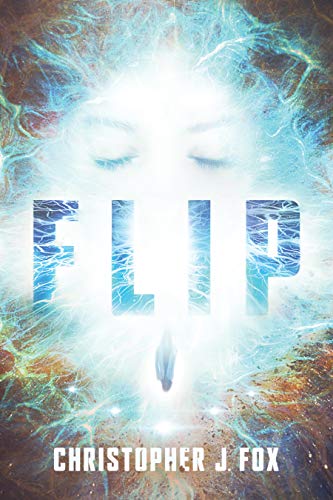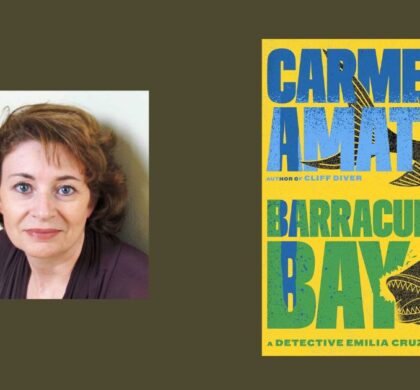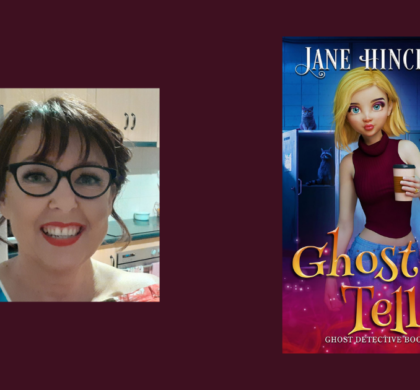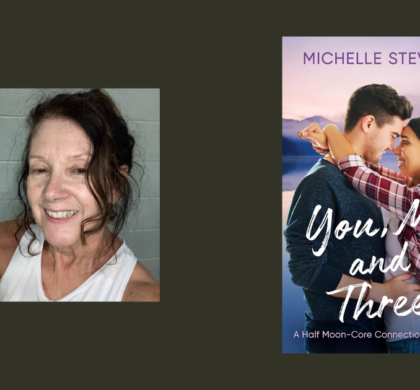Interview with Christopher J. Fox, Author of Flip
26 Nov 2019
What can you tell us about your new release, Flip?
Flip is a science fiction thriller that posits what it would be like if you could look at our reality in a way that’s different than our normal, everyday experience. In the alternate view, it’s much easier to predict future events.
The heroine is unintentionally thrust into this alternate view by her rivals who actually wanted to keep her out of the alternate view. While her mind is stuck in the alternate view, called the Wave World, her body lies in a coma like state here in the regular or Particle World. She uses what she learns in the Wave World to help others, but her body is being consumed every moment she’s there, accelerating her toward death. Her rivals want to capture, and subject her to terminal studies, while her family works to evade them and protect her.
Mix together plenty of conflict, action, villains you’ll love to hate and heroes who are fighting just to survive with a little quantum theory, neuroscience, and some Buddhist philosophy, and you’ve got a read with five-star Amazon reviews like:
“Excellent book! Great example of science fiction. Well-developed characters, riveting plot, and an interesting mix of actual science with a good fiction. Best book I have read since CS Lewis’s Space Trilogy. I hope a sequel comes soon. Very good book.”
“Excellent read. Author knows the science behind the fiction and weaves it well. Could not put it down once I started it. Looking forward to the next installment, and see how the characters evolve.”
Flip is the first in a series with these characters, there are at least three more stories.
What or who inspired you to become an author?
I didn’t intentionally set out to be a writer. I never had an “Aha! Yeah that’s what I’ll do, I want to be a writer” moment. I never had that epiphany or rush of clarity. But the desire to consume and tell stories was always there. I guess I was inspired by all the books and comic books I took refuge in as a kid. I loved writing fiction in high school. I took science fiction courses and wrote for the literary magazine. My sci fi teacher, Mrs. Rose, taught me that “science fiction is a logical projection of reality.” I’m still that nerd.
Writing was a skill that got developed in college, though I was a science major (Psychobiology), not an English major. I never enjoyed my English or literature courses, which I guess seemed to highbrow to me. So, I never considered being a writer.
Then, when I was in the IT field as an infrastructure engineer, I encountered a lot of technical content that just sucked. It lacked context so it was accurate but not at all helpful, it was unrelatable, it was dry. At its core it lacked the element of story that makes any information you want to relate approachable. So, I thought I could do better, and I started to write technical articles for magazines on the side. It turns out I could do better, and I got paid to do this! This sideline grew in to writing technical books. Clearly writing was becoming a bigger part of my professional life.
Then I moved into a full-time technical writer role which I still do for my day job. I do fiction writing as a night job simply because I love it. Both types of writing allow me to combine my interest in science and technology and my taste for stories to, speaking bluntly, make a living.
What’s on your top 5 list for the best books you’ve ever read?
That’s a hard list to make. I know that it’s changed throughout my life. I’ll go with stories and authors I keep returning to or ones that really impacted me:
• Crichton – Pretty much anything, but I really enjoyed The Great Train Robbery. The Andromeda Strain got me hooked on the LabLit genre. Dragon Teeth. His approach appeals to me, do heavy research in whatever you are interested in and the story that emerges won’t be too far off from the current reality and the near future.
• Carl Sagan – Contact, Pale Blue Dot, the Cosmos Tv series.
• Tolkien – Who doesn’t want to spend some time in Hobbiton to escape the frenzy of today’s world?
• J.K Rowling – For, well, you know…
• Herbert – Dune series ties together planetary science, religion, politics, economics, fanaticism, what’s not to love!
• Melinda Gates – The Moment of Lift, open your mind, wake up!
• Dava Sobel – Everything she has written
• Dan Brown – The DaVinci Code, just plain fun.
• Tom Clancy – The Hunt for Red October, Patriot Games, Without Remorse.
Say you’re the host of a literary talk show. Who would be your first guest? What would you want to ask?
Since this is a hypothetical, lets expand it a bit. I’d have a panel of guests on my first show address just one question in a group discussion:
“Please speak to the influence that fiction and science have one each other and as a confluence how they are a cultural and intellectual force on the development of western society.”
Now, let’s address the panel selection and what each panelist would bring to the discussion. Yes, most of them are dead and finding a common language might be a hurdle, but who cares. Let’s assume we could get around all the hurdles and let them talk!
a. Leonardo DaVinci: The model that comes to mind when thinking of a Renaissance Man. His life’s work combined science, art, and technology. He envisioned scientific advances and technological wonders that were hundreds of years in future.
b. Mary Shelley: an insightful critic of the moral implications of the potential of scientific advances.
c. Jules Verne: A visionary, he anticipated events and technology, some decades into the future, and placed humans into them. The moral consequences of individuals and societal actions played heavily into some of his works.
d. H.G. Wells: Like Verne, another visionary who’s work anticipated technological advances and events some decades into the future, and some not yet realized.
e. Gene Roddenberry Imagined a future for humanity that is not apocalyptic, but proceeds from the assumption that humanity doesn’t destroy itself and can grow to realize a fuller potential.
f. Carl Sagan: Astronomer, physicist, and student of humanity and the human condition.
g. Michael Crichton: Medical doctor, and author whose work is solidly based in the scientific and other scholarly literature of the time. His near real time works of fiction are still a cultural force. His period pieces, all based on solid research, help pull us out of our temporal provincialism a term I borrow from Crichton himself.
h. Dava Sobel: A gifted science reporter and writer who has brought scientific history to life for me like no one else. She would bring a backward-looking perspective on the impact of science and technology on societal development. She zeros in on significant scientific and technological events, brings a humanity to them that an academic historical analysis wouldn’t even consider and drives home their impact.
i. Steven Johnson: Like Sobol, Johnson has the ability to look at one specific event in time and illustrate its significance and impact on the development of our society
j. Michio Kaku: Physicist, futurist, author, he imagined things that probably will come to pass in the coming decades and centuries.
What’s your favorite thing about writing?
Nailing a scene or a line. Nothing beats the feeling of finding exactly the right words, tone and rhythm that covey what’s inside my head onto paper. To me written fiction is sheet music for the imagination of the reader.
What is a typical day like for you?
I always try to be reading or researching something that is background for or will help inform the next story. My wife and I do all the plotting, character development and voicing together. It’s joint work. It’s not uncommon for us to start a conversation with “hey, what if so and so (meaning a character) did….”.
What scene in Flip was your favorite to write?
The opening scene of Chapter 24, New Mexicans at the Gate. People often see physical size and the force projected by those who use it as power. This is embodied in the red-headed enforcer character, Angus Baka. But in my experience, some of the most powerful people, the ones that really have impacted the world and leave an impression on us haven’t been physically large at all. They do have an inner strength based on their morality that they act on and that they emanate. That’s Mollie, small but mighty. You see that in plenty of characters, take Yoda for example. In real life, look at Ruth Bader Ginsburg and Mother Theresa.
I also enjoyed juxtaposing the two characters, Mollie and Baka, in the dusty, windblown parking lot. There are echoes of two gunfighters facing off on the street of an old New Mexican town.
I also like the humorous image of the shot up black SUV, you know the kind you see used as limos for the important and pampered of the world, creaking and hissing its way out of the parking lot. Writing humor is not my strength, so I stay away from it. If something I write happens to come out as funny, it’s entirely accidental but rewarding.
Do you have a motto, quote or philosophy you live by?
Well let’s say I try to live my life in a certain way and succeed less than half the time.
• If someone offers you a breath mint always take it and thank them.
• If you are feeling miserable, you are probably thinking about yourself.
• If someone you know and trust tells you to stop talking, do it, you are probably saying something that will cause you trouble later on. Thank the person who told you stop talking.
• What matters, really the only thing that matters, is how we treat each other.
• It costs you nothing to show compassion, courtesy, and respect to everyone.
• Forgive.
• Try not to be too judgmental of others and their actions, you’ll only look and feel like an ass when you later realize you have the same weaknesses and are guilty of doing the same things yourself.
• Think globally, act locally.
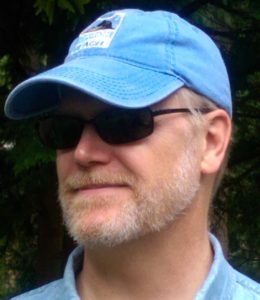
Christopher J. Fox is the author of the new book Flip.
Connect with Christopher
Author Page
Buy The Book
Sign up for our email and we’ll send you the best new books in your favorite genres weekly.
